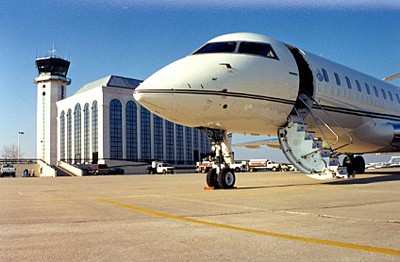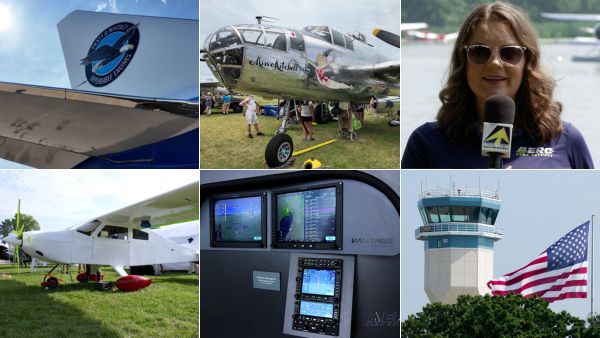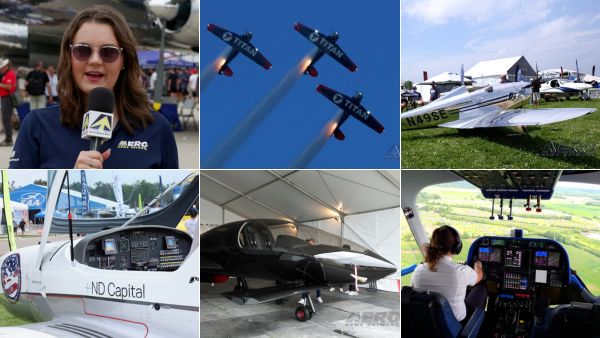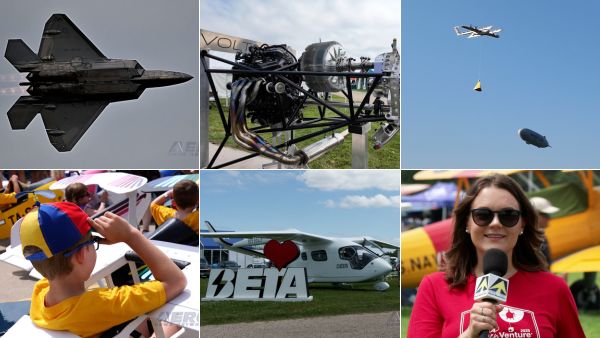Mon, Aug 28, 2023
Funding Aims to Enhance, Standardize Airport Layouts to Eliminate Near-Accidents
The FAA announced the next batch of recipients to gain funding for improved taxiways, lighting systems, and airport accouterments in an effort to reduce runway incursions after a rash of high-profile incidents.

The money will come from the FAA’s Airport Improvement Program and the recent infrastructure law. Winners of the funding include Ted Stevens Anchorage International, in Alaska; Willow Run Airport of Detroit, Michigan; Boston Logan International, in Massachusetts; Naples International in Florida; Jackson Hole Airport, in Wyoming, Richmond International, in Virginia;, Eugene F Kranz Toledo Express, in Ohio, and Ronald Reagan Washington National, in Washington DC.
Anchorage will get almost $40 million to redesign the geometry of its taxiways and runway intersections, as well as improve lighting systems for low visibility conditions. Additional improvements will lengthen and widen some taxiways in order to meet the needs of larger modern aircraft using them. Detroit will see $12.8 million for a new taxiway, obviating back taxi needs for its main runway. Boston will get almost $45 million to simplify their layout, too, following the airport’s runway incursion mitigation plan. The work will also improve and overhaul existing taxiways and runways to reduce FOD and improve runway durability. Naples will get a more modest $3.5 million to revise Taxiway A’s intersection with B to fall in line with standardized intersection standards, with 3,000 feet of service roads to be reconstructed for better vehicle flow. Jackson Hole will get $2.6 million for a new taxiway in order to eliminate back-taxiing, with the rest going to rehab Taxiway A for structural
integrity and FOD reduction. Richmond will see $5.6 million to shift a taxiway North in order to meet modern FAA design standards.Toledo will get $4.6 million in order to shift a taxiway and rehabilitate a whole bunch of its own, not just to eliminate FOD risks but to reduce the amount of standing water building up on airport surfaces from rain and snowmelt. Finally, Washington DC will get $5 million to build a new connecting taxiway between Runways 1/19 and 15/33 in order to expedite traffic, while reconfiguring a handful of runways and holding bays to meet modern standards.
More News
Also: New Lakeland Fly-in!, Gleim's DPE, MOSAIC! Nearly three-quarters of a century in the making, EAA is excited about the future… especially with the potential of a MOSAIC>[...]
Estimated (EST) -When used in NOTAMs “EST” is a contraction that is used by the issuing authority only when the condition is expected to return to service prior to the >[...]
Aero Linx: Regional Airline Association (RAA) Regional airlines provide critical links connecting communities throughout North America to the national and international air transpo>[...]
The Airplane Broke Up In Flight And Descended To The Ground. The Debris Path Extended For About 1,435 Ft. Analysis: The pilot, who was the owner and builder of the experimental, am>[...]
From 2015 (YouTube version): History Comes Alive Thanks to A Magnificent CAF Effort The story of the Douglas C-47 named, “That’s all Brother,” is fascinating from>[...]
 Airborne 07.21.25: Nighthawk!, Hartzell Expands, Deltahawk 350HP!
Airborne 07.21.25: Nighthawk!, Hartzell Expands, Deltahawk 350HP! ANN's Daily Aero-Term (07.27.25): Estimated (EST)
ANN's Daily Aero-Term (07.27.25): Estimated (EST) ANN's Daily Aero-Linx (07.27.25)
ANN's Daily Aero-Linx (07.27.25) NTSB Final Report: Luce Buttercup
NTSB Final Report: Luce Buttercup Classic Aero-TV: 'That's All Brother'-Restoring a True Piece of Military History
Classic Aero-TV: 'That's All Brother'-Restoring a True Piece of Military History



